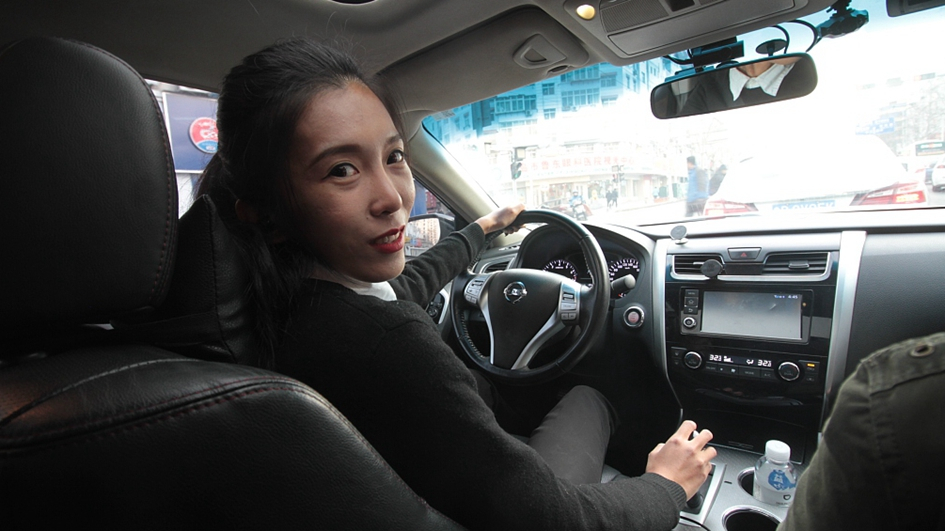
Money Stories
14:23, 08-Mar-2019
Women break job barriers as rideshare drivers
CGTN

Women account for 16.7 percent, 7.4 percent and 5.6 percent of total rideshare drivers in Brazil, China and Mexico, respectively, on Didi Chuxing's platforms, according to a survey conducted by the Chinese ridesharing company.
The research of the state of women rideshare drivers in China and Latin America shows that mobile technology is helping women to break through constraints in traditional industries and providing employment opportunities in New Economy sectors.
According to the research, the career plays an important role in their lives – both in terms of contributing to their families and to social and economic development.
In China, 10.6 percent of women rideshare drivers surveyed by DiDi gave up their previous job because of unexpected life changes, 17 percent were laid off from jobs in traditional industries, 33.2 percent left their full-time jobs to take care of their families, 19 percent of women rideshare drivers are their families' sole breadwinners and approximately 10 percent of all women rideshare drivers make over 8,000 yuan (1,190 U.S. dollars) per month.
About 10.2 percent of women rideshare drivers in China are housewives and 15 percent have not worked for two years before starting to drive for DiDi.
From China to Brazil, around 50-70 percent of women drivers have young children and 57 percent of women drivers have other jobs. Consequently, 74.8 percent of women drivers work for less than four hours, compared to 64 percent for male drivers.
Among the women rideshare drivers, 59.7 percent said they prefer ridesharing work for its flexibility and 29 percent think that this can be a long-term career for them in China.
The gig economy gives women another alternative to keeping income and caretaking in balance. It also offers them a buffer to search for other long-term employment opportunities with increased autonomy.
About 14.7 percent of women rideshare drivers in China have college degrees, compared to 40 percent in Brazil.
Breaking traditional societal barriers
The gig economy allows women with diverse backgrounds to pursue their life goals. In many traditional sectors, age and family responsibilities are often seen as barriers for women in the workplace.
In China and Latin America, the majority of women drivers are above 35 years old. In Brazil, 18.4 percent of women drivers are above 50 years old. In China, 78.3 percent of women drivers have one or more young children and 11.3 percent of them are single mothers.
In Brazil, full-time women rideshare drivers make the same income as males or even higher.
Women drivers tend to get higher service ratings. In China, about 10 percent more women drivers have a service score above 95. In Mexico, 43.4 percent of women drivers have the full score, compared to 37.9 percent for men. In Brazil, the ratio is 33.9 percent vs. 32.9 percent for women vs. men.
According to the ILO Research Report, the global wage gap between men and women stood at 20 percent in 2017. In traditional sectors, equal education without equal pay has been challenging in many countries. New technology is an important factor in promoting equal pay.
In China, 82.3 percent of women drivers believe technology has a positive impact on gender equality; 63.3 percent of women in Brazil agreed. During interviews, women drivers in China also referred to the shifting caretaking dynamic at home, where their male partners are more ready to take part in housework when women are out driving.
As women's participation and awareness deepen, businesses need to listen more to ensure the voices of women and other minority groups are taken into account in systemic rulemaking and product design, according to Didi.

SITEMAP
Copyright © 2018 CGTN. Beijing ICP prepared NO.16065310-3
Copyright © 2018 CGTN. Beijing ICP prepared NO.16065310-3